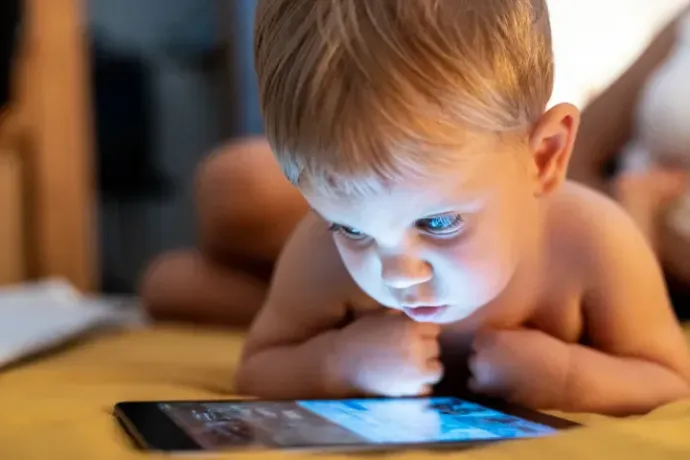Kindergarteners using smart devices more during pandemic contributed to drastic deterioration of their linguistic performance, Hungarian researchers find
Hungarian researchers studied young children’s use of digital devices during and after the coronavirus pandemic, the Hungarian Academy of Sciences reports. The experts warn that
entire generations may grow up with impaired linguistic abilities and speech disorders,
often due to the unlimited use of smartphones or tablets, which can overwhelm young children with visual stimuli.
According to the researchers, while much is known about the impact of the epidemic on schoolchildren and adults, its impact on those at the most vulnerable developmental stage at the time, preschoolers, has remained relatively hidden. Among other things, they examined children's recreational use of smartphones and tablets after the state of danger was declared (while severe restrictions were in place) as well as at a stage when there were no strict restrictions in place, with the goal of identifying the changes that occurred when the quarantine measures affected public education as well. The researchers at ELTE found strong evidence that pre-school children watched more TV and used tablets and smartphones more during lockdowns, with most of them watching fairy tales and videos.

"The unanimous opinion of speech therapists who test children in kindergarten is that children's linguistic skills have deteriorated drastically in the last 2-3 years.
Today's preschoolers are not able to perform at the same language level as preschoolers from 5 years ago or even 3 years ago."
– said Ákos Pogány, assistant professor at the Department of Ethology at Eötvös Loránd University, who believes that the visual stimulus provided by smart devices is to blame for this phenomenon. This is problematic because the first few years of childhood are a special period during which children learn their mother tongue passively, by listening and focusing on acoustic information. Smart devices close the door on this passive acoustic channel, because they offer much more interesting visual stimuli.
"If there is no language, there is no communication. There is no area in childhood development that we can think of that doesn't require communication and understanding language. Experts are referring to the consequences of using smart devices too early or too much as virtual autism.
They are essentially seeing behaviours and symptoms that are common in children diagnosed with autism in these children."
– the researcher explained. This is a major problem because most parents do not know or understand why giving a smartphone to a child in a stroller is harmful.
For more quick, accurate and impartial news from and about Hungary, subscribe to the Telex English newsletter!